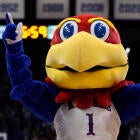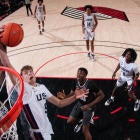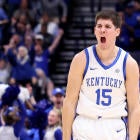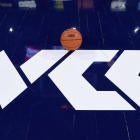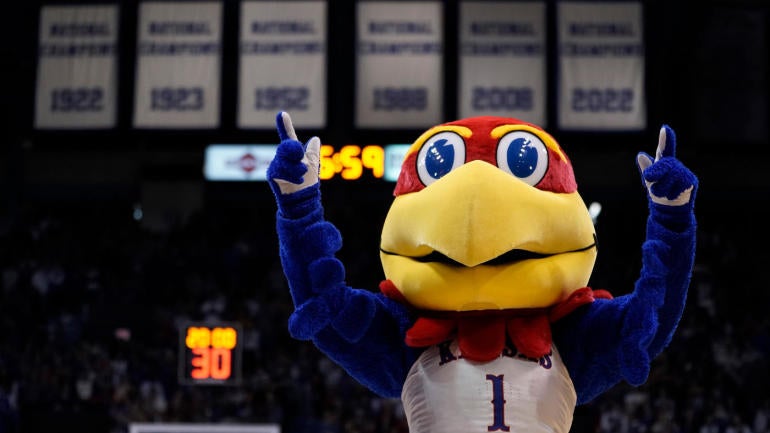
The infractions case against Kansas basketball concluded Wednesday more than four years after it began. What a colossal waste of time. When it began, it was an NCAA violation to accept a free lunch. By the end, players could legally drive Escalades provided by boosters thanks to NIL freedoms.
In that span, entire recruiting classes were able to get their degrees – or signing bonuses.
No matter what your perception of what Kansas did or didn't do, there certainly wasn't evolution on the part of the body that decided the program's fate. The Independent Accountability Resolution Process was created in 2018 in the wake of the college basketball FBI/SDNY bribery and corruption scandal in 2017. It was specifically designed to take on complex and major cases. It was supposed to streamline the process.
The "case procedural timeline" released Wednesday by the IARP contained 93 bullet points.
And that was considered a summary, but it summarized the IARP on several fronts.
It is laughable at the length of time it took to decide, well, not much of anything. Remember, this was supposed to be a signature case in which Adidas bag men were supposedly paying players to go to KU.
Kansas was initially hit with charges of five NCAA Level I violations. At the beginning, the school vehemently denied the allegations calling them "simply baseless." But in time suspended coach Bill Self and assistant coach Kurtis Townsend for four games last season. Whether that helped in Wednesday's decision, it turned out to be enough because the only thing that mattered was whether the IARP would hammer the Jayhawks.
It didn't because the only penalty that matters to anyone is a postseason ban.
Anything short of that was a win for Kansas. So, Kansas won on Wednesday. Big time. The Jayhawks will have to vacate some wins from 2017-18, take down the 2018 Final Four banner and deal with some recruiting limitations. But compared to what could have been, it was almost nothing.
The Jayhawks are a potential preseason No. 1 and once again a national championship contender. The IARP? Gone. Done. Adios. It was decided long ago that the organization would shutter after the last of the cases involving the FBI/SDNY scandal that is now six years old. The NCAA won't tell you, but the IARP was canceled because, ultimately, it was a failure.
Kansas was the last case. The result begged a familiar question that goes along with all major penalties. What was the point? What disincentives to rules breaking were there?
Consider that since the first allegations were developed in 2014:
- Kansas won eight regular-season Big 12 titles.
- Self became a first-ballot Naismith Hall of Fame selection.
- Self was awarded a "lifetime contract" on the eve of the 2021 Final Four.
- Kansas won the 2022 national championship.
It should also be noted that Self had a heart issue last March, had two stents put in, and has emerged healthy at age 60.
The same can't be said of the late, great IARP.
The organization was commissioned by then-NCAA president Mark Emmert based on recommendations by a blue-ribbon committee. It was supposed to take pressure off the "peer review process" – Big Brother (NCAA) judging Little Brother (membership). The idea turned out to be ill-conceived and further complicated the process.
When infractions cases were referred to the IARP, frequently that created a whole new investigation. IARP members from the outside had to be informed of NCAA rules. These were smart people – former judges, lawyers, etc. It doesn't mean in the end they were necessarily qualified to the nuances of the NCAA.
In the end, the process had the unique impact of pissing off both the NCAA enforcement department – the accusers -- and the accused.
In its existence, the IARP heard six cases. The threat of what it might do turned out to be worse than what it did. LSU self-imposed a postseason ban in football. Arizona did the same in basketball. NC State and Arizona got rid of their coaches.
But Kansas was the big one, the most substantive case loaded into the IARP barrel. For the IARP, this would be proof of concept. Five Level I violations! Even one Level I could have resulted in a postseason ban. But the IARP found much less than that.
"The hearing panel reached its conclusion after looking at all the evidence, which was quite extensive," said IARP hearing officer Christina Guerola Sarchio, a general commercial litigator and white-dollar defense attorney for a major law firm.
Without saying it, the IARP said it – the enforcement staff and committee on infractions screwed up in making those Level I allegations.
That's why there was a bit of a celebration not only at Kansas but in the NCAA enforcement division Wednesday. After this case – the IARP -- is over. The folks who initially investigated this stuff are NCAA lifers – enforcement officers dedicated to finding wrongdoing. It's a vocation for them. The same for the NCAA Committee on Infractions. It is made up of administrators – presidents, ADs, etc. -- who volunteer their time.
The IARP folks turned out to be a sort of investigatory carpetbaggers. Whatever rules they were able to memorize, their findings could not be appealed.
And you thought the NCAA was autocratic? Good for you, KU. But goodbye IARP. And good riddance.













